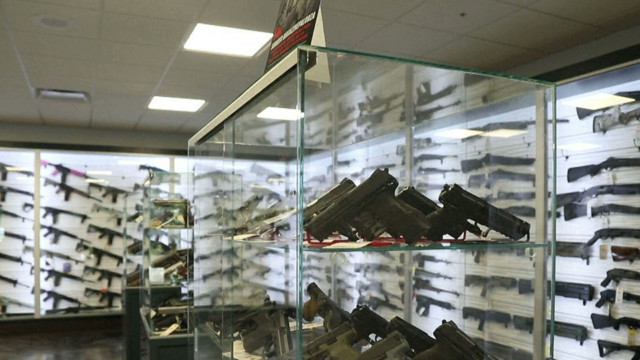As the U.S. searches for answers after another mass shooting, other countries have successfully limited gun violence.
CGTN’s Jim Spellman reports.
A 2017 Pew Research Center study finds that about four in 10 U.S. adults live in a household with a gun. Most of those households report having more than one gun. The high rate of gun ownership in the U.S comes at a deadly cost.
“There is a correlation between the availability of guns and the number of mass shootings. Both of them have been going up at the same time and it’s not coincidental,” Enrique Pumar, a researcher at Catholic University in Washington D.C, said.
In recent decades other countries have taken strict gun control measures and seen positive results.
A mass shooting in Australia in 1996 led to many guns being banned. The government bought back and destroyed hundreds of thousands of weapons. In the years before the crackdown, there were 13 mass shootings in Australia. In the two decades since the ban, there have been no mass shootings.
A 1996 mass shooting in the U.K. led to laws banning handguns, with only a few exceptions. Within a few years, gun deaths plummeted and have continued to fall since the early 2000s.
Japan has some of the most restrictive gun control laws in the world. According to the Council on Foreign Relations, the gun homicide rate there is the lowest in the world.
But there is huge political resistance to gun control in the United States. The powerful NRA gun lobby opposes nearly every gun control measure, and guns are extremely popular in much of the country.
“We’re never going to get to a solution like Australia has. We’re never going to get to a solution like the UK has had. We’re American and in our constitution the second amendment guarantees the right to bear arms… So I think we’ve got to operate within those bounds, but I think there are some things we can do tomorrow that would have a drastic effect,” Shawn VanDriver, a public safety researcher at the Truman National Security Project said.
VanDriver suggested limiting ammunition capacity, universal background checks and requiring firearms safety training could help, even if those measures wouldn’t stop mass shootings completely.
 CGTN America
CGTN America

